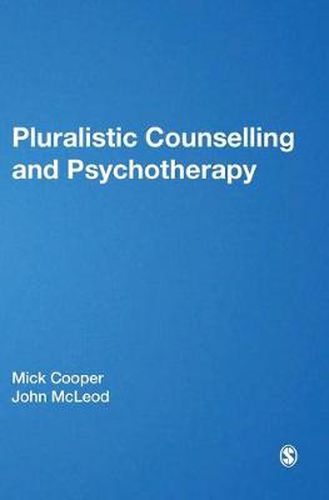Readings Newsletter
Become a Readings Member to make your shopping experience even easier.
Sign in or sign up for free!
You’re not far away from qualifying for FREE standard shipping within Australia
You’ve qualified for FREE standard shipping within Australia
The cart is loading…






Mick Cooper and John McLeod pioneer a major new framework for counselling theory, practice and research - the ‘pluralistic’ approach. This model breaks away from the orientation-specific way in which counselling has traditionally been taught, reflecting and responding to shifts in counselling and psychotherapy training. As accessible and engaging as ever, Cooper and McLeod argue that there is no one right way of doing therapy and that different clients need different things at different times. By identifying and demonstrating the application of a range of therapeutic methods, the book outlines a flexible framework for practice within which appropriate methods can be selected depending on the client’s individual needs and the therapist’s knowledge and experience. This is a must-read for anybody training or practising in the counselling or helping professions - it should not be missed.
$9.00 standard shipping within Australia
FREE standard shipping within Australia for orders over $100.00
Express & International shipping calculated at checkout
Mick Cooper and John McLeod pioneer a major new framework for counselling theory, practice and research - the ‘pluralistic’ approach. This model breaks away from the orientation-specific way in which counselling has traditionally been taught, reflecting and responding to shifts in counselling and psychotherapy training. As accessible and engaging as ever, Cooper and McLeod argue that there is no one right way of doing therapy and that different clients need different things at different times. By identifying and demonstrating the application of a range of therapeutic methods, the book outlines a flexible framework for practice within which appropriate methods can be selected depending on the client’s individual needs and the therapist’s knowledge and experience. This is a must-read for anybody training or practising in the counselling or helping professions - it should not be missed.